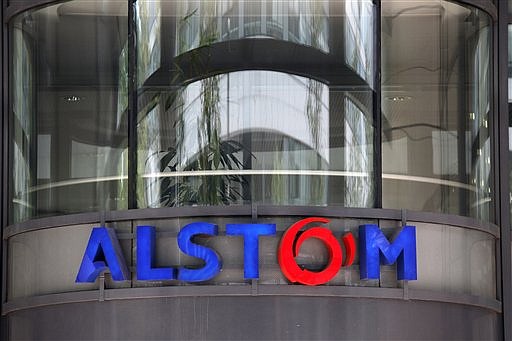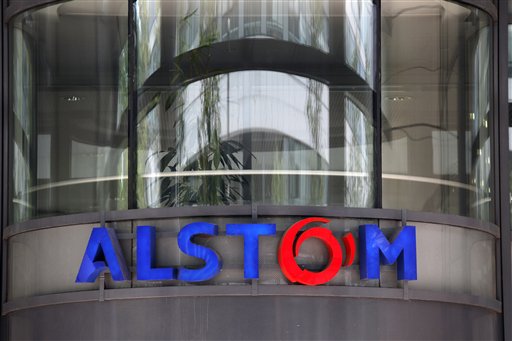Read more
Alstom tax break questioned: Chattanooga, Hamilton County mayors say company didn't achieve jobs promise
Two very positive things happened this week in Chattanooga over what has been a prickly subject: payment-in-lieu-of-taxes agreements known as PILOTs -- the tax breaks that are often extended to expanding industries or property and housing developers.
Both of those names are misleading. They should be referred to as profits-in-lieu of taxes as they amount to years of tax-free status to whomever the city and county officials grant them.
Occastionally PILOTs make sense. Forgiving city and county property taxes and business taxes for a decade or two to help persuade Volkswagen to bring thousands of new jobs here was -- to use a worn-out business phrase -- a win-win.
But giving tax breaks to developers looking to turn an old warehouse or factory into apartments or forgiving a decade of taxes to a business that's already been here for decades because it will expand enough to add several dozen more jobs needs to be looked at long and hard. Those forgone taxes mean fewer dollars to fix our roads, keep our parks in good repair and pay our police and firefighters. Routinely forgoing legitimate taxes for developers and manufacturers could all too easily result in tax increases for the rest of us.
That's why this week marked a quiet but distinct change in the usual PILOT conversation in our City Hall and County Courthouse.
On Tuesday, the Chattanooga City Council heard a request for a 14-year tax freeze for renovations of the Maclellan Building, a landmark downtown high rise. This time, instead of a rubber stamp, council members began "a lively discussion" about whether residential tax breaks are beneficial in the long run. In the Maclellan deal, the developer would get a 10-year break from taxes, then pay about $1.5 million in discounted property taxes during the final four years of the agreement. The city and county would waive about $1.3 million in taxes over that time. Developers also would set aside 20 percent of their rental units at lower rates to provide some affordable downtown housing.
"Lively discussion" translates to council members actually talking about it. Debating it. In public. What a concept. We look forward to more discussion when they vote on the issue next week.
Councilman Yusuf Hakeem said he wants to rein in the city's payment in lieu of taxes, or PILOT, agreements, because in his view downtown is vibrant enough to support itself. Councilman Moses Freeman argued that reducing tax breaks could force the city to raise taxes because more development might not occur and then more downtown buildings might remain empty or in disrepair. Councilman Ken Smith and others asked for more government accountability to monitor developers and make sure they keep their agreements.
The next day -- Wednesday -- got even better. That's the day Chattanooga Mayor Andy Berke and Hamilton County Mayor Jim Coppinger, for the first time, demanded that a local business pay back a PILOT tax break it received. Why? Because the company, Alstom Power, didn't meet its part of the bargain -- adding 300 new jobs by Dec. 31, 2014.
In 2008, Alstom entered a three-phase PILOT with the city and county for its $300 million expansion in Chattanooga. The Paris-based company was to add the new jobs and make $265 million in capital investments. The city and county were to waive Alstom's property taxes, except for a small portion of the school tax, for about 18 years.
But Alstom's facilities on Riverfront Parkway suffered from slowdowns and a year ago Alstom furloughed most of its then 335 workers for nearly a month. At the end of 2014, Alstom told the Chamber of Commerce it had created only 140 new jobs, and in February, the company laid off 100 workers.
It's fair to say that taxpayer thank-yous for our local officials' new-found dedication to questioning, overseeing and enforcing these tax-break agreements should go largely to local government watchdog Helen Burns Sharp, a retired city planner transplanted here from Oregon who put up her own money to sue the city's Industrial Development Board over a different tax incentive granted to the developers of Black Creek Mountain. The wealthly developers received breaks in the form of a $9-million boost to build a road up Aetna Mountain to open a posh subdivision there overlooking a golf course.
After the mayors made their Alstom demand, a pleased Sharp told the Times Free Press that the announcement is a step toward tax and government accountability.
"It might be nice if we could go back and get the others [businesses] that haven't met their agreements," she said.
Yes, it would be nice, but thanks to Sharp's persistence and the rally cries of others in the community and this paper, newer agreements now have claw-back provisions outlining what actions the governments can take if a business doesn't meet its obligations. Also on newer agreements, education taxes are no longer waived.
It's about time.

